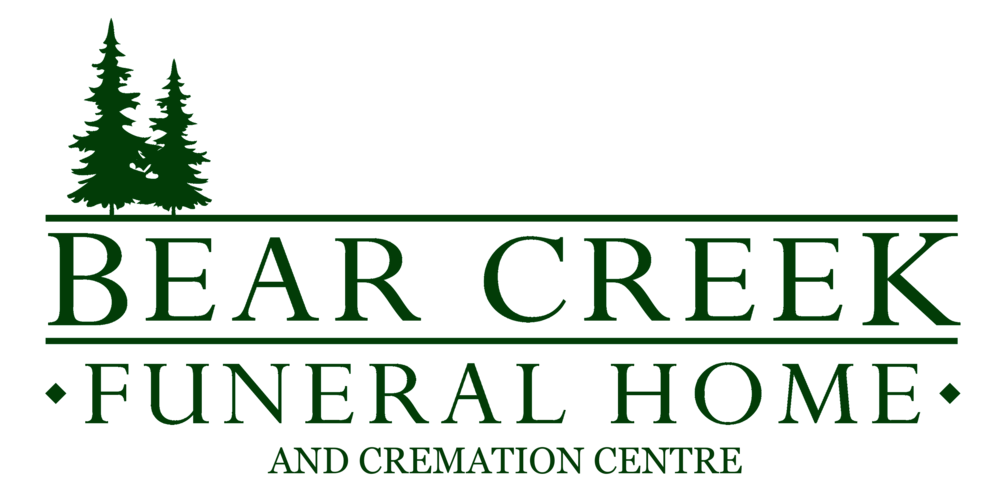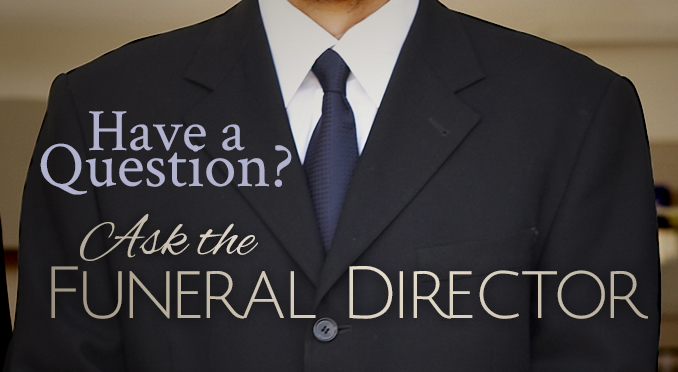

When Death Occurs
No matter if a death is sudden, or if it something that was a long time coming, the loss of a loved one makes us feel emotional and overwhelmed. No amount of preparation can fully prepare you for the loss of a loved one. When you are in a heightened emotional state, even the most basic decisions can seem staggering. The following is a rough guideline of what needs to be done within the first 24 hours after death.
When death occurs at home, a place of business, or elsewhere in the community
If the person was not under palliative care, the police will have to be notified immediately. The police will contact the medical examiner. From there, the medical examiner will take the body and determine whether further action is necessary. The family may contact Bear Creek Funeral Home immediately to ease the burden of communication and begin making arrangements for care of their loved one.
When a death occurs at a hospital/nursing home/hospice facility
The staff of a care facility such as a hospital or a nursing home will notify you and the necessary authorities immediately after a death has occurred. The family then contacts Bear Creek Funeral Home to bring your loved one into our care and to make the necessary arrangements. We offer the option of coming directly to the hospital room so that you may be with your loved one and (if you desire) participate in the transfer to our care.
Meeting with your Funeral Director
You should meet with a funeral director within 24 hours of a death to begin to make final arrangements for your loved one. Deciding on these final arrangements may seem like a very daunting task, especially when you are in heightened emotional state, but, funeral home staff have years of experience dealing with these issues, and strive to ensure everything goes as smoothly as possible. Funeral directors are here to help you obtain a death certificate, transport the body, and in the event pre-planning was not done, select a casket/urn and arrange the funeral/memorial service. The funeral director will also help you notify the employer and insurance company of the deceased to assist with those arrangements. Funeral directors are here to help and advise you and will work very hard to relieve the stress and logistics involved in funeral planning.
Making Arrangements
First the Funeral Director will gather information required for the death certificate. This includes:
- Full Name and Address
- Legal Marital Status
- Date and City of Birth
- Father’s Name, Mother’s Name (including maiden name)
- Places of birth of Father and Mother
- Name of Spouse (if married, widowed, or divorced)
- Occupation and Employer
- Social Insurance Number
- Health Care Number
- Driver's Licence Number
If no pre-planning has been done, necessary arrangements need to be made for the funeral service. These include:
- Scheduling the location, date and time of the visitation and funeral service
- Selecting burial or cremation
- Choosing Funeral Products
- Arranging a cemetery plot
- Preparing an obituary notice
A funeral director will guide you through all these steps, using your wants, needs and desires as a foundation to create a memorable funeral for your loved one. From here the funeral services can be personalized. Did your loved one have a favourite sports team? What was their favourite type of music? What activity was your loved one known best for? Recalling fond memories assists with the grieving process and will help honour the life of your loved one.



